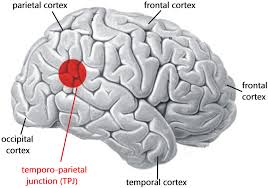Why Do We Experience Déjà Vu? A Glitch in the Matrix, or Something Else? by Naitik Jain
- Annie Z
- Sep 17, 2024
- 2 min read
Updated: Oct 5, 2024
We've all had this feeling—that feeling of having lived a moment before, even though we know it's our first time experiencing it. This eerie sensation is called déjà vu, which is a French term meaning "already seen." But what is actually happening within our brains?
What Is Déjà Vu?
Déjà vu is that feeling when something seems uncannily familiar, though it is new. It is a
peculiarity—a mistake between memory and perception. About 60-70% of people report having déjà vu experiences, mostly in their teens and twenties. So, why does it happen?
A Glitch in Memory
One of the most extremely popularly held theories to cause déjà vu is miscommunication in the memory systems. Taking into consideration the processing mechanisms of the brain, when we experience something, it gets briefly processed into short-term and long-term memory. If the signal is asked to transfer, by the brain, to the long-term center a bit too prematurely, an illusion is produced that this moment of time has already occurred.
Experiment: Split-Perception Theory
In one experiment, participants were given images to see very quickly, without consciousness registering them. Later, when they had to view those images, they often experienced déjà vu. That means the brain "misfiles" some moments of time, and then later feels familiarity with them.
Temporal Lobe
Also, déjà vu has been linked to the temporal lobe—the section of the brain that governs
memory. Those with temporal lobe epilepsy frequently experience déjà vu before a seizure. It's theorized that short electrical misfirings in the temporal lobe sometimes make the brain
incorrectly recollect a new moment.
Can We Study Déjà Vu?
Déjà vu is so spontaneous that it's tough to study, but researchers have tried. In one virtual
reality experiment, people were put into rooms that looked similar to others. Some experienced déjà vu when subtle details matched previous rooms. Hypnosis has been employed in efforts to induce the sensation by making individuals "forget" memories that subsequently feel familiar upon recall.
Conclusion: A Mind-Bending Brain Trick
Déjà vu might feel like you are stuck in some type of time loop, but it is more likely just some
sort of neat brain trick. It might be a sign of a healthy brain trying to keep your memories sharp.
Enjoy the mystery next time it happens—your brain is doing something really cool.
References
● O'Connor, A. (2017). Déjà Vu: Memory Disturbance or a Sign of Cognitive Health?
University of St. Andrews Study.
● Leeds Memory Group (2006). Virtual Reality and Memory Research. Leeds University.
Image from https://youtu.be/OLTPAa_MNuk





Fascinating!! Great blog topic! 😀